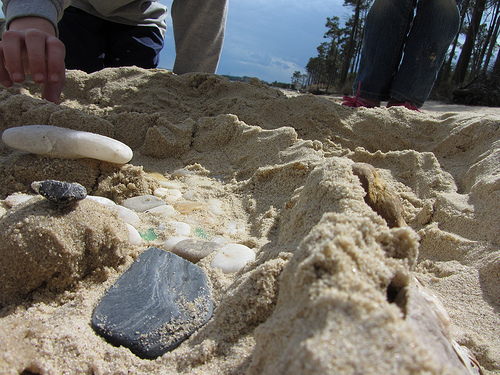“Grit” Determines Academic Success
Do you have a child who never gives up, no matter what? If she had to do 100 pull-ups by the end of the week, would she give it her all every day? If your son had to sell 1,000 candy bars by the end of the month, would he knock on as many doors as it took? If so, your child has “Grit.”
The ability to persevere regardless of obstacles, called “Grit,” is the character trait most closely related to academic achievement. That’s according to the Learning Habit Study at Brandeis University, which examined 46,000 U.S. households of children in grades K-12.
“Grit” is more important than IQ or talent in predicting whether a child will succeed. That’s good news for the parents of youngsters who will practice their piano lessons or their jump shots or their multiplication tables until they turn blue.
But even if a tantrum or an exasperated, “I quit,” is the response you get when a task is too hard for your child, don’t worry. Parents can make their children “grittier.” And it’s easy. Here are five tips:
Encourage them to try new things. Stephanie Donaldson-Pressman, of the New England Center for Pediatric Psychology, says, “When children are encouraged to persist, to try new things, and to take more responsibility for things they can control, they develop grit. These children learn from their mistakes and develop better decision-making skills than kids who aren’t held accountable.”
Have them make their beds. According to Dr. Melissa Nemon, who worked on the Learning Habit Study, “The evidence shows that consistently doing household chores has positive effects on children’s grit formation.” Chores makes them more responsible and provides discipline, both important qualities for success.
Turn off the television and put away the iPad. Excessive media use – more than 45 minutes a day – was found to be detrimental to children’s’ grit scores. Media are a distraction that can take away from a child’s focus.
Praise them when they do well. For obvious reasons, building a child’s self-esteem helps them succeed. According to a Department of Education report on grit, “Consistently praising effort over ability is a simple practice that can have important payoffs.” Children who have a positive view of their own abilities are much more likely to put in the effort it takes to do well.
Praise them when they do not do well. Well, don’t exactly praise them. But let them know that failing isn’t a bad thing. It’s part of being human. And it provides an opportunity to show them how to bounce back from adversity.
It won’t hurt to let them know that they’re in good company when they fail. Michael Jordan was booted from his high school basketball team. Walt Disney was fired because he “lacked imagination.” And Dr. Seuss’ first children’s book, “And to Think That I Saw It on Mulberry Street,” was rejected by 27 publishers.
How does your child show grit?







